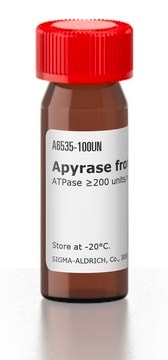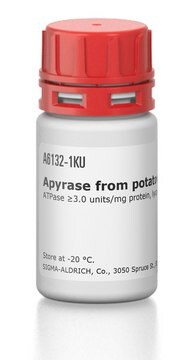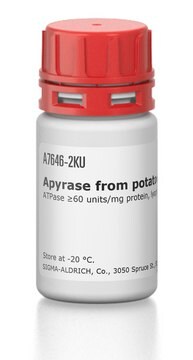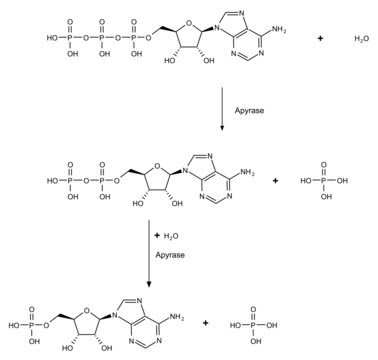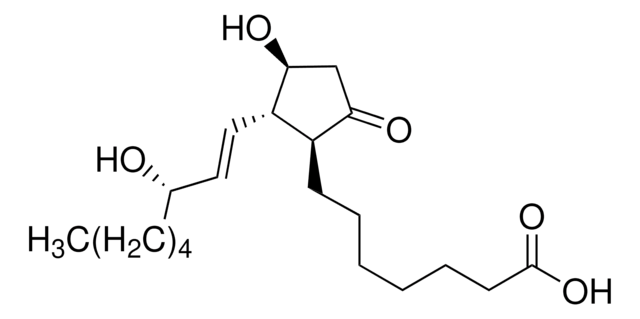SRE0019
Apyrase from potatoes
Suitable for manufacturing of diagnostic kits and reagents, ATPase ≥200 units/mg protein
Synonym(s):
Apyrase from potatoes, Adenosine 5′-diphosphatase, Adenosine 5′-triphosphatase
About This Item
Recommended Products
Quality Level
type
Grade VII
form
lyophilized powder
ATPase activity
≥200 units/mg protein
secondary activity
≥50 % of base activity ADPase
composition
Protein, 25-60%
solubility
H2O: soluble 1.0 mg/mL
application(s)
diagnostic assay manufacturing
foreign activity
Acid Phosphatase ≤2% of base activity
storage temp.
−20°C
Application
Reaction: ATP → ADP+Pi → AMP+2Pi.
Biochem/physiol Actions
Unit Definition
Physical form
Preparation Note
Other Notes
Signal Word
Danger
Hazard Statements
Precautionary Statements
Hazard Classifications
Resp. Sens. 1
Storage Class Code
11 - Combustible Solids
WGK
WGK 1
Flash Point(F)
Not applicable
Flash Point(C)
Not applicable
Certificates of Analysis (COA)
Search for Certificates of Analysis (COA) by entering the products Lot/Batch Number. Lot and Batch Numbers can be found on a product’s label following the words ‘Lot’ or ‘Batch’.
Already Own This Product?
Find documentation for the products that you have recently purchased in the Document Library.
Our team of scientists has experience in all areas of research including Life Science, Material Science, Chemical Synthesis, Chromatography, Analytical and many others.
Contact Technical Service